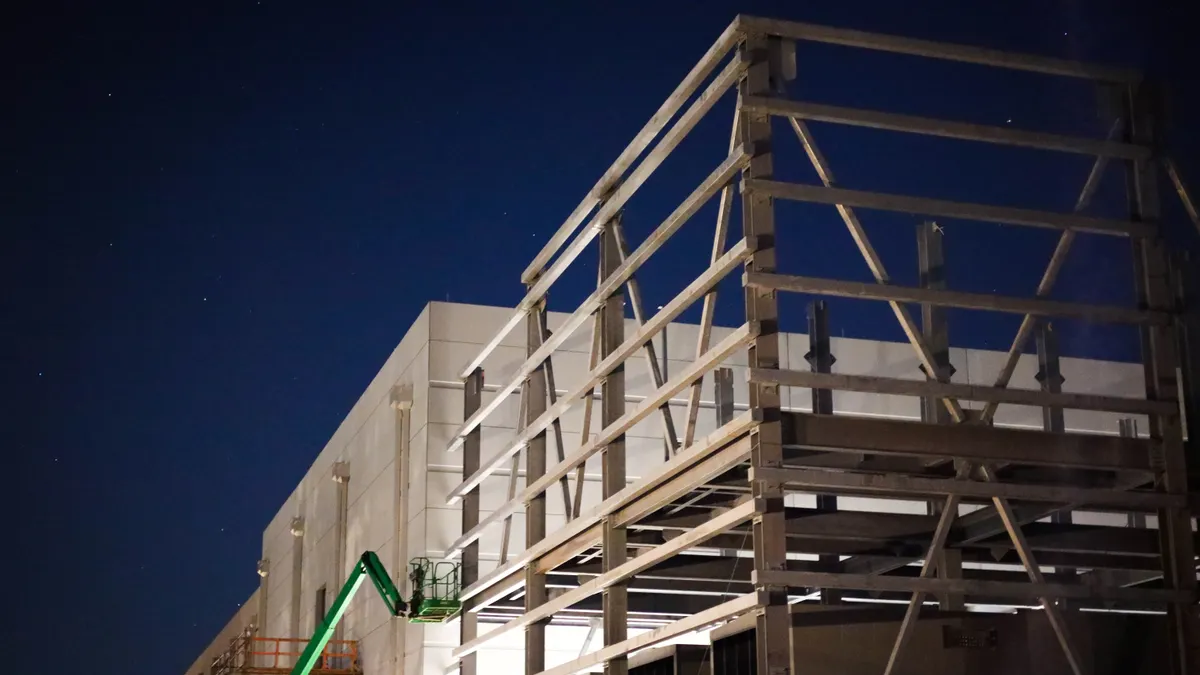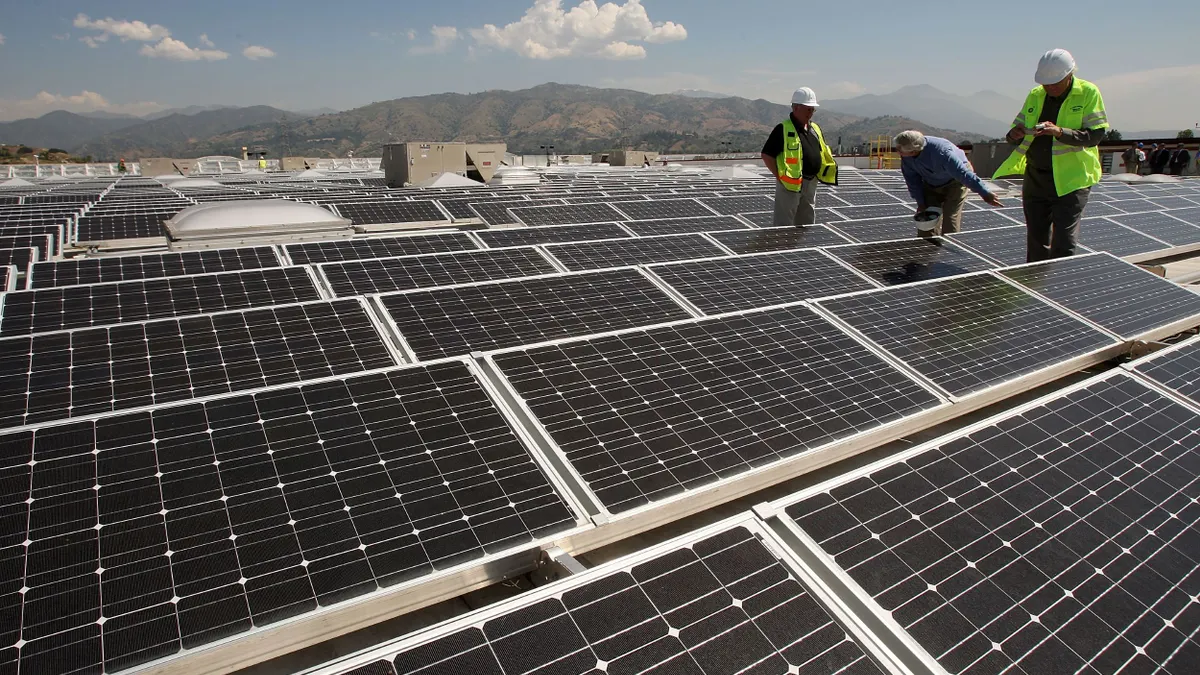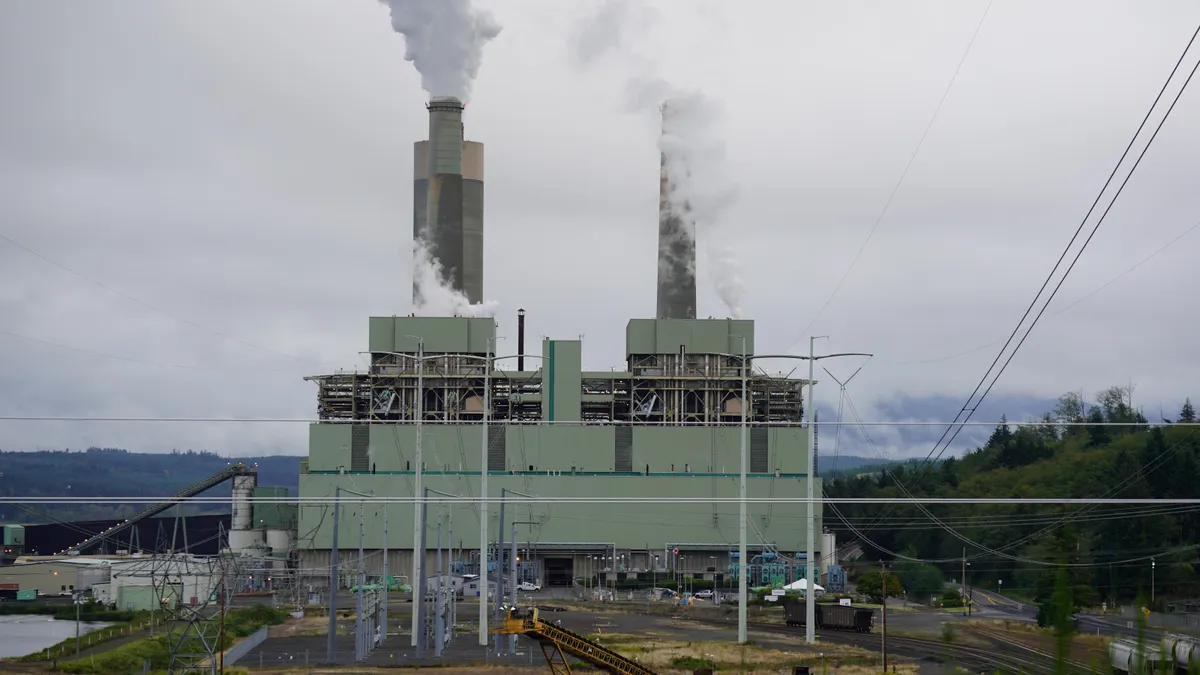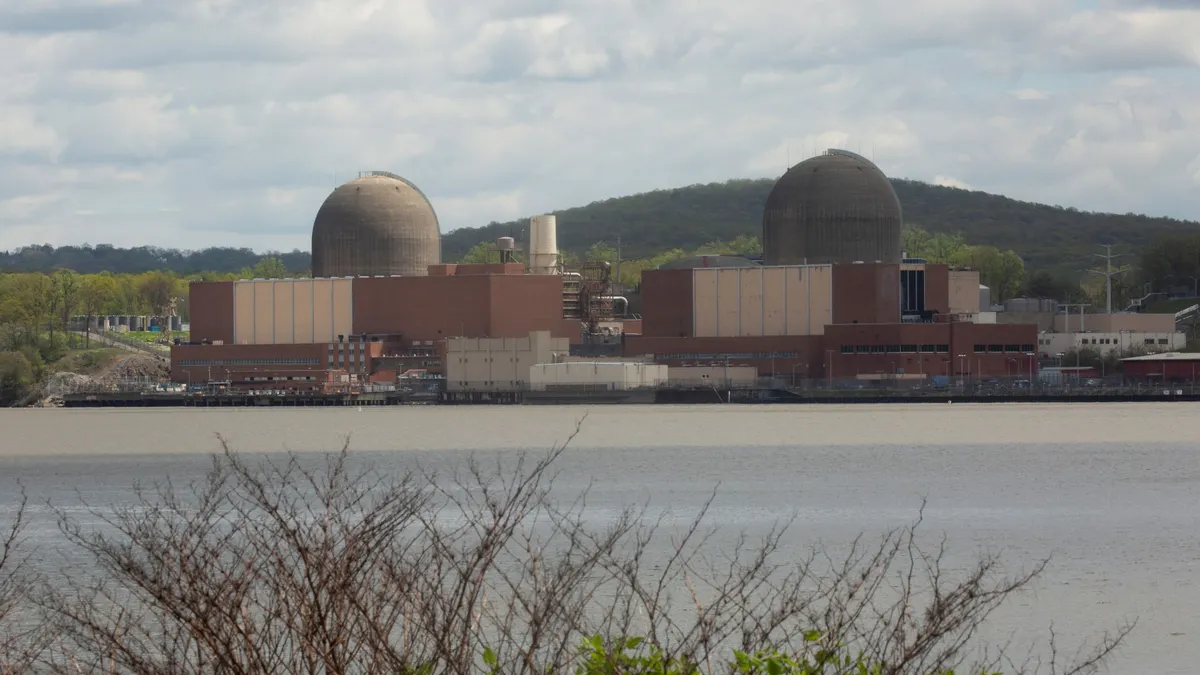Illinois legislators, utility leaders and stakeholders have worked to advance a bill to transition the state to zero emissions by 2030, but an investigation uncovering nearly a decade of alleged bribery activity in the state from Commonwealth Edison (ComEd) threatened the landmark legislation.
The Illinois Clean Jobs Coalition previewed on Wednesday an updated version of the Clean Energy Jobs Act (CEJA), to reflect the impact of COVID-19 on vulnerable communities and to increase accountability among utilities.
The new bill would seek restitution from ComEd, in addition to the $200 million fine the utility paid to the federal government. The bill would also include performance-based metrics for utilities and a repeal of ComEd and Ameren Illinois' recent rate hikes.
In addition, the coalition, which includes the Chicago Jobs Council, the Citizens Utility Board and other local businesses and environmental organizations in the state, are working with Rep. Ann Williams, D, and Sen. Cristina Castro, D, to update the bill to include language on equity, ethics and job training.
The bill had included provisions to fund energy efficiency and focus on economic support for underserved communities, but the new version would take a more direct approach to target communities that rely on the fossil fuel industry for jobs, according to the coalition.
Illinois' participation in PJM
The new CEJA would also rewrite a controversial part of the bill that addresses Illinois' participation in the PJM Interconnection's wholesale market, targeting the participation of fossil fuel plants. Critics of CEJA, including the Illinois Chamber of Commerce, have asked that any updated bill also cut subsidies or bailouts for nuclear plants in Northern Illinois.
CEJA would add a 100% renewable energy target for 2050 to the 2030 zero emissions mandate, but many utilities and environmental groups argued that nuclear power was necessary for a more ambitious zero emissions target. ComEd's parent company, Exelon, is the largest generator in Illinois using nuclear power plants that it has threatened to shutter in the past.
The coalition, among other Illinois stakeholders, is pushing for the state to opt out of PJM's capacity market, to procure energy that aligns with the clean energy transition plan laid out by CEJA, per the regional transmission organization's Fixed Resource Requirement (FRR).
Under the FRR, fossil fuel plants that get priority in the wholesale market over new renewable energy resources due to the minimum offer price rule would be treated differently by the state. However, the state Chamber of Commerce argues that the FRR would still use capacity market rules to subsidize nuclear plants owned by Exelon.
"The real test is whether they're going to give ComEd the crown jewel in their bill or not," said Todd Maisch, CEO and president of the Illinois Chamber of Commerce. "If they do, everything else in the bill is completely suspect."
The Chamber of Commerce supports S.B. 3837, introduced in February by Sen. William Cunningham, D, which strikes the FRR language and includes the purchase of new renewable energy credits in long-term procurement plans. The Chamber expects to garner support for the bill in the fall and hope the legislature will pass it in 2021, Maisch said.
The coalition emphasized during a press conference call on Wednesday that the new version of CEJA would break away from "the old playbook where the utilities try to dictate to Illinois policymakers what is in their interests," Jack Darin, director of the Sierra Club's Illinois chapter, said.
The FRR language from the CEJA update will reflect some changes, driven by a final order from federal regulators last year on the minimum offer price rule, Andrew Barbeau, president of consulting company The Accelerate Group, said in an email.
"The coalition still believes strongly that capacity payments currently, and even more so in the future under the Trump administration's actions, are bailing out otherwise uneconomic fossil fuel plants," said Barbeau, who is supporting the Illinois Clean Jobs Coalition.
"The Illinois Chamber is operating here as the mouthpiece for NRG Energy," he said. "Anything the state does to address climate change, whether that includes FRR, carbon caps, targeted closures, fees, or 'market-based solutions,' is going to hurt the profits of fossil fuel companies and they [the Chamber of Commerce] will oppose it."
The Chamber consults its members, including independent power producer NRG Energy and other opponents of CEJA, on state policy proposals but ultimately supports S.B. 3837 as the best outcome currently for ratepayers and utility companies, Maisch said.
CEJA's provisions would be in the interest of the communities, as opposed to the generators, Dulce Ortiz, co-chair of Clean Power Lake County, said during the conference call. She targeted her statements toward NRG's Waukegan coal plant, which participates in the PJM capacity market.
NRG responded that the independent power provider has invested in Illinois communities, such as a $100,000 donation to the state's COVID-19 first responders, and by contributing rooftop solar to Waukegan's school district.
"We are committed to operating our facilities in compliance with all environmental laws and regulations and have invested more than $500 million in Illinois including at Waukegan Station, dramatically reducing emissions from our plants at no cost to electricity customers in the state," Dave Schrader, spokesperson for NRG, said in an email.
New approach to utility rates?
The coalition seeks to move away from a "formula rate" for utility compensation, youth activist and coalition administrator Tonyisha Harris said during the conference call. And that includes targeting recent rate increases from Ameren and ComEd.
ComEd maintains its latest rate hike led to a 70% improvement in reliability and has kept energy costs affordable for customers in Northern Illinois.
"We know we have a lot of work to do to rebuild trust," ComEd said regarding the Coalition's push to update CEJA. "We support any ratemaking process that is transparent and consistent."
Ameren also said the current ratesetting framework has led to reduced rates in seven out of the last 10 regulatory filings, including a $45 million decrease for 2021.
"Let’s look at the facts. Each year, Ameren Illinois files more than 6,000 pages of documentation outlining our costs and prudent investments we will make to strengthen the grid," Tucker Kennedy, Ameren's director of communications, said in an email. "These nine-month proceedings allow for extensive input from consumer advocates."
In addition to repealing recent rate hikes, the coalition wants to include provisions in CEJA to increase resources for overlooked communities that would be most impacted by job losses in the transition away from fossil fuel energy. The new CEJA would fund investments in fossil fuel communities through a fee on polluters, according to Barbeau, including the creation of 18 hubs across the state to provide job training in clean energy.
The CEJA gained momentum in the state earlier in the year with bipartisan support, according to Sierra Club's Darin. Before the coronavirus pandemic hit, Democratic Gov. J.B. Pritzker said clean energy legislation would be a priority.
The Illinois state legislature reconvenes in November. The coalition anticipates new bill language to be shared in the coming weeks.






















